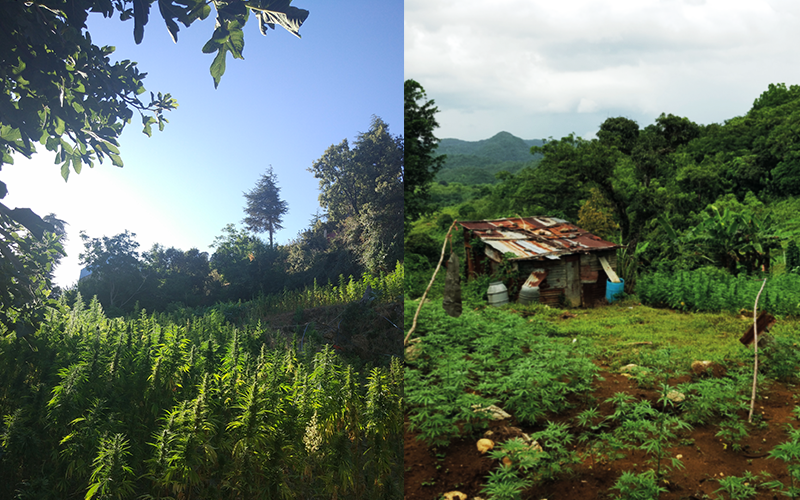|
|
|
Cannabis rescheduling: What could it mean for Africa and the Caribbean?
In January, 2019 the World Health Organization issued a collection of formal recommendations to reschedule cannabis and cannabis-related substances under the UN drug control conventions. Fifty three member states of the Commission on Narcotic Drugs (CND) are set to vote on these recommendations in December 2020. Given the long and complicated history of cannabis and its related policies, what would rescheduling it at the UN level actually mean? Learn more from these two regionally-focussed briefings.
Cannabis rescheduling: What could it mean for Africa and the Caribbean?
In most African and Caribbean countries, cannabis-related legislations are rooted in the UN drug control system - and hence the continued punitive approach to cannabis consumption, trade, and production.
But as reflected in global trends, cannabis remains the most widely used illegal substance in Africa and the Caribbean, where cannabis cultivation also serves as one of the few – if for some not the only – livelihoods available for communities in marginalised rural areas. Meanwhile, more and more countries in Africa and the Caribbean are now taking steps to legally regulate cannabis, mainly for medical and industrial purposes.
 Cannabis in Morocco and Jamaica (Photo credit Dania Putri and Martin Jelsma) Cannabis in Morocco and Jamaica (Photo credit Dania Putri and Martin Jelsma)
This December, 11 African states and two Caribbean states are set to vote on the WHO's recommendations on cannabis and cannabis-related substances. Rescheduling cannabis at the UN level presents an opportunity for governments and civil society to further decolonise drug control approaches, while strengthening the international legal basis for emerging medicinal cannabis programmes. Nonetheless, certain recommendations should indeed be approached with caution, for example in relation with the explicit underlining of pharmaceutical products like Sativex and Marinol – which may pose challenges for countries with a long history of therapeutic use of cannabis preparations which are more herbal and traditional in nature.
Learn more from these two briefings, available here (Africa) and here (Caribbean).
With only a few months left until the vote in December, the CND has tabled a number of ‘topical meetings’ to facilitate discussions among member states around specific cannabis-related recommendations of the WHO. Though held online, the structure of these ‘topical meetings’ has so far excluded civil society participation. This marks a ‘dangerous precedent’ in a policymaking space where civil society organisations have long fought so hard to be recognised.
|
|
|
|
| |
| Other activities on drug policy |
|
If legal regulation is not designed and implemented with principles of social justice, public health, development and human rights at its core, then a post-prohibition world is likely to replicate the same levels of exploitation and inequality that have become the norm under years of prohibition. Join us in this groundbreaking 8 part international webinar series exploring why socially just legal regulation is vital for sustainable development.
Colombia continues to be the largest producer of cocaine in the world. Although the United States is the main destination for this substance, new markets have opened in Europe and some parts of Asia and Oceania. Ricardo Vargas analyses the current panorama of Colombian cocaine, drug trafficking cartels, and human rights violations under the crop eradication policy.
On June 3rd, TNI co-hosted a webinar together with the International Drug Policy Consortium, Washington Office on Latin America, and Penal Reform International, bringing together reform advocates from Asia, Africa, and the Americas. Many ideas were exchanged during the 90-minute discussion. Check out the illustrated summary here.
Opium production is often treated as a security issue, paying too little attention to the more complex realities on the ground. To improve knowledge and add nuance to policy and academic debates, TNI is proud to join the Mexico Opium Network, an initiative led by México Unido Contra la Delincuencia (MUCD) and Noria Research.
“How should we evaluate the models of cannabis legalization as they have been implemented in several jurisdictions in the past few years? Which scenarios for future cannabis legalization have been developed elsewhere, and how similar/different are they from the models already implemented?” Learn more from this new book featuring a chapter by TNI’s Tom Blickman and Katie Sandwell. Use this flyer to get a 20 percent discount of your purchase.
|
|
|
|
|
|
|
|
|
|
|
Formed in 1996, the TNI Drugs & Democracy programme explores the underlying causes of drug production and consumption and advocates for evidence-based policies that respect the human rights of producers and consumers.
Missed our previous newsletters? Revisit them here. |
|
|
|
| |
|
|
| |